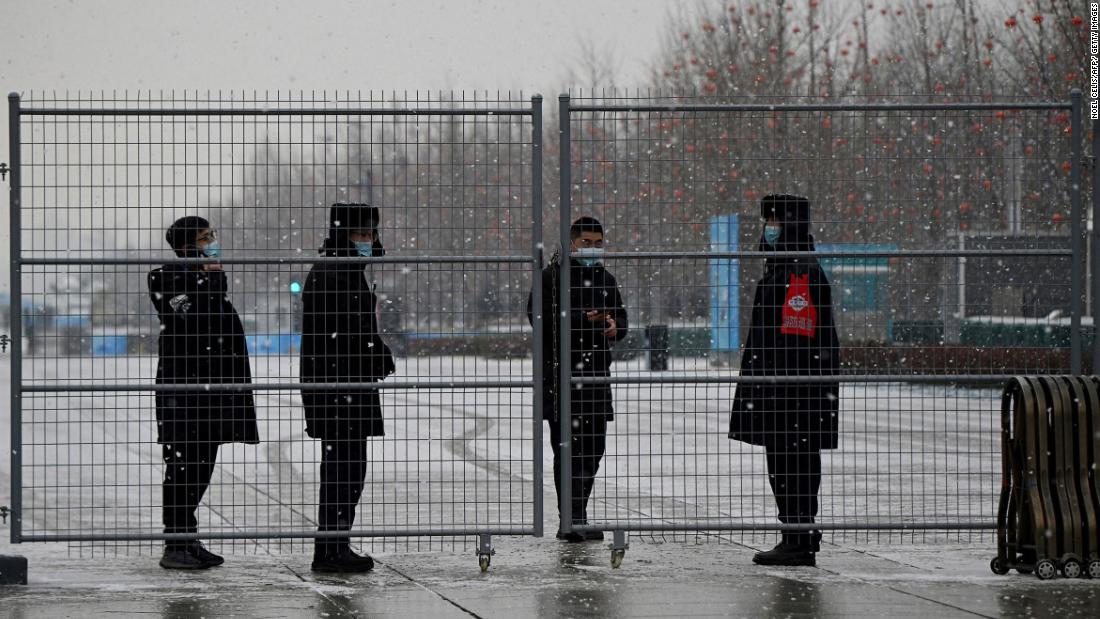
The Winter Games is just two weeks away and outside Beijing’s Olympic venues, the banners and decorations are up. But so too are long rows of metal fences and guard posts, dividing the Chinese capital and barring anyone without an official Covid-safe pass.
Having been largely sealed off from the world for two years, Beijing is bracing itself for the arrival of thousands of foreign Olympians, officials, journalists and support staff — including from countries where the highly transmissible Omicron variant is raging.
Whether Chinese authorities can keep the Games Covid-safe and prevent any flare-ups from spilling into Beijing is the ultimate test of China’s zero-Covid strategy. The stringent prevention and control measures are held up by the ruling Communist Party as proof of the supposed superiority of its authoritarian political system. The strategy has kept infections and deaths low — but it has also inflicted painful lockdowns on millions of people and isolated China from the world.
And now, Beijing is applying those same measures to the Olympics. To limit the spread of infection, it is sealing the entire Games inside what authorities have called a “closed loop system” — a bubble completely cut off from the rest of the city.
The quarantine is arguably the most ambitious of its kind ever undertaken. The NBA attempted something similar, when it created a quarantine zone inside Disney World in Orlando, Florida, designed to keep players and staff safe for the final stages of the 2019-20 season. But what Beijing is about to attempt is on a whole other level.
Whereas the NBA “bubble” housed about 350 players from 22 teams, the Beijing bubble is welcoming an estimated 11,000 people from around the world — and they will be shuttling through three competition zones up to 111 miles (180 kilometers) apart.
Securing the bubble will require massive manpower, meticulous planning, pervasive surveillance and rigorous government enforcement — and the arrival of Omicron has only made it all the more challenging.
Already, coronavirus has been detected in recent Olympic arrivals in Beijing, both at the airport and inside the closed loop.The International Olympic Committee (IOC) said in a statement Wednesday that so far, 1.53% tests conducted upon arrival are positive, while 0.02% of regular screening tests taken inside the closed loop are positive. It did not specify the number of total tests in both scenarios.”
All cases so far are within 5 days of arrival and are therefore assessed as being imported (contracted prior to arrival in Beijing). No infection has occurred within the Closed Loop,” the statement said. As of Friday, more than 2,000 participants have arrived in Beijing, including athletes, officials, members of the IOC and media, according to the official app for the Beijing Winter Games. Thousands of Chinese volunteers and staff have already spent days, if not weeks, inside the closed loop.

